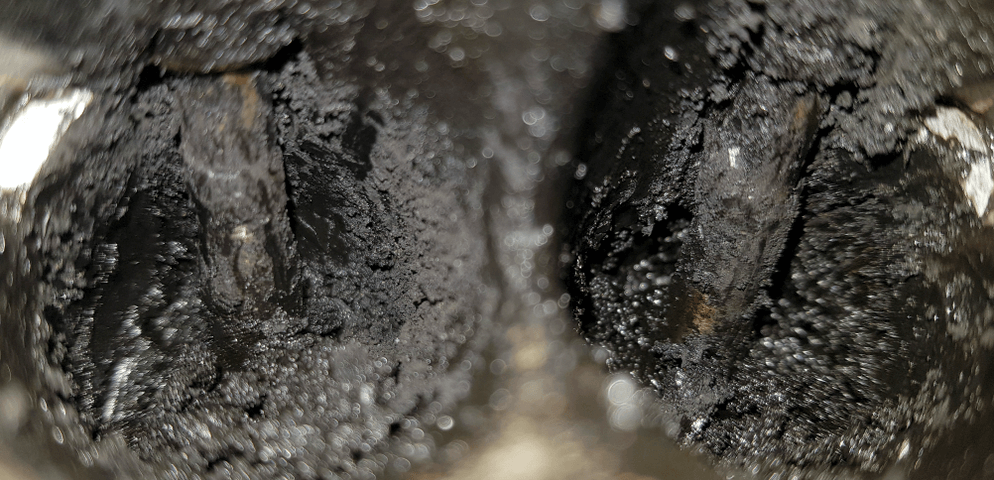Imagine the engine of your car as the heart that continuously pumps energy to propel it. But just like arteries can get blocked, “carbon build up in engine” can also affect your engine. At this point, gross, black debris begins to build up inside the engine, much like crud in your pipes. Carbon buildup is a cunning troublemaker that may make your automobile use more gas, lose power, or even create strange noises.
We’re going to go into the realm of carbon accumulation in automobile engines in this post. We’ll learn why it occurs, how it affects your automobile, and what you can do to maintain a clean engine and a smooth ride. So let’s explore this carbon conundrum with a seatbelt.
Table of Contents
Explain The Signs Of Carbon Build Up In Your Engine
The earliest signs of carbon buildup in your car’s engine may be modest, but as the issue gets worse, they become more obvious. Here are some typical warning indicators to look out for:
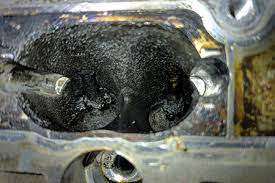
1. Fuel Efficiency Decline:
A drop in gas mileage is one of the first symptoms. Carbon buildup can interfere with the air-fuel mixture, forcing your engine to use more fuel to produce the same level of power as before.

2. Losing Power:
If your car struggles to climb hills or feels less responsive when you accelerate, carbon buildup may be blocking airflow and interfering with combustion, which lowers engine output.
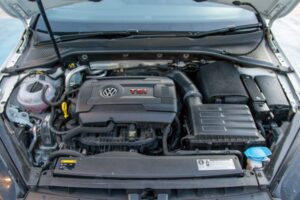
3. Misfiring Engines:
Misfires happen when an engine’s cylinders don’t properly burn fuel. Your automobile may run unevenly or jerk if there is carbon buildup on the spark plugs and in the combustion chamber, which can cause misfires.
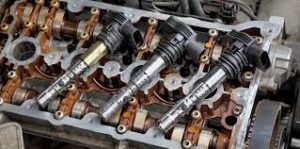
4. Knocking Sounds:
As an indicator of aberrant combustion, excessive carbon deposits might produce knocking or pinging noises. Your engine may eventually be harmed by this.

5. Rough Idling:
An automobile with carbon buildup may idle erratically and vibrate or shake while it is still.
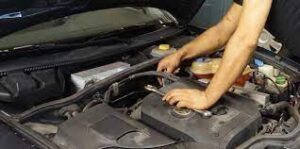
6. Exhaust Emissions Rise:
Carbon buildup can increase the amount of hydrocarbons and carbon monoxide that are released into the atmosphere, hurting the environment and perhaps causing your car to fail emissions testing.
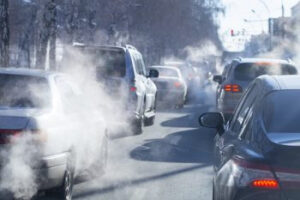
7. Check Engine Light:
The dashboard check engine light may come on if the onboard computer in your automobile notices engine problems brought on by carbon buildup.
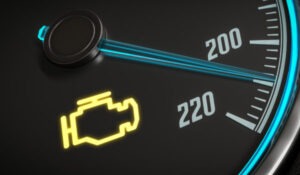
8. Hesitation Or Stalling:
When carbon buildup is excessive, your automobile may stall or hesitate when you accelerate, which makes driving dangerous.

It’s critical to take immediate action if you see any of these symptoms. Carbon buildup can get worse with time, causing more serious issues and expensive repairs.
Reasons Why Carbon Build Up In Engine Of Your Car?
Similar to how dust gathers in your house, carbon buildup in your car’s engine does the same. We’ll investigate this issue in order to comprehend how it occurs.
1. Unfinished Burning:
To move, the engine in your car has to burn fuel. On occasion, it doesn’t burn everything completely. Consider attempting to burn a piece of paper, but having it only partially burn. With fuel in the engine, that is what takes place. Carbon deposits form from the leftovers.
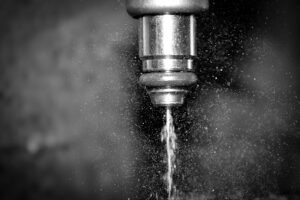
2. Low-Grade Fuel:
Higher quality gasoline is necessary for a clean engine, just as better cleaning products make cleaning simpler. Impurities in low-quality fuel can lead to additional carbon deposits being formed.
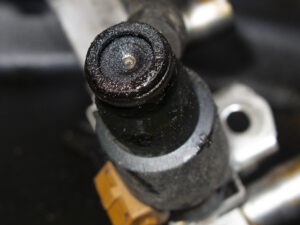
3. Short Journeys:
Like people, cars require some time to properly warm up. Short excursions prevent the engine from properly warming up, which results in incomplete combustion and increased carbon accumulation.
4. Maintenance Ignorance:
You must clean your home frequently to keep it organized. Similar to this, routine engine maintenance minimizes carbon buildup. Neglecting maintenance is equivalent to allowing your home to get unclean and dusty.

5. Idling Excessively:
Consider continuing to run your vacuum machine while doing nothing but vacuuming. In the same way, excessive idling in vehicles consumes fuel and contributes to carbon buildup.
You can take action to maintain the cleanliness and smooth operation of your car’s engine by being aware of these causes. It’s similar to regularly cleaning your house to keep a dusty mess at bay.
Solutions To Fix The Carbon Build-Up Causes
Performance problems in your car’s engine may result from carbon buildup. Let’s look at some easy fixes to address the underlying issues and keep your engine in good working order.
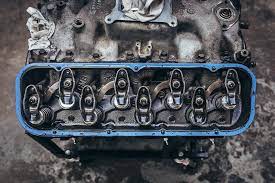
1. Use High-Quality Fuel:
Choose top-quality or premium gas. Quality gasoline prevents carbon buildup in your engine and reduces contaminants.
2. Drive On Highways Frequently:
Occasional longer trips. Your engine reaches its optimum working temperature when you travel on highways or for a long amount of time. This keeps your engine clean and aids in burning off carbon buildup.

3. Fuel Supplements:
Use fuel additives intended to clean your engine as a possibility. These compounds eliminate carbon deposits while preventing the growth of new ones. Follow the manufacturer’s recommended usage guidelines for your car.
4. Scheduled Maintenance:
Follow the maintenance schedule for your car. Cleaning the intake system, valves, and other crucial engine parts is all part of routine maintenance. This preventative technique controls the accumulation of carbon.

5. Limited Idling:
Carbon deposits can build up as a result of prolonged idling. If you want to park your car for a time, turn off the engine. It is a simple method for reducing carbon buildup and fuel use.
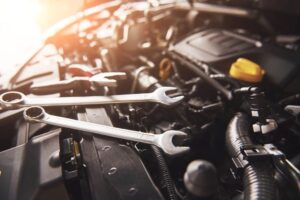
6. Drive Easily:
Avoid harsh braking and fast acceleration. Driving smoothly lessens the strain on your engine and aids in maintaining efficient combustion, which lowers carbon accumulation.
7. Speak With A Mechanic:
Consult a professional if you believe there is excessive carbon buildup or if your engine is performing poorly. They may conduct expert cleaning treatments to get rid of tenacious deposits and guarantee your engine functions properly.

8. Putting In A Catch Can:
Installing an oil catch can in your engine’s ventilation system is occasionally able to capture oil vapours that cause carbon buildup. Carbon deposits can be significantly reduced with this easy addition.
These remedies can help you properly treat the underlying causes of carbon buildup in engine of your car. Keep in mind that an engine with proper maintenance not only runs better but also lasts longer, costing you less in the long run in repairs. You’ll benefit from a cleaner, more effective engine for years to come if you keep these suggestions in mind.
Can Carbon Buildup Damage My Engine?
Yes, it’s true that carbon buildup can damage your engine. The functionality of your engine might be hampered by carbon buildup on components like valves and pistons. This may cause issues like diminished power, ineffective fuel efficiency, knocking noises, and increased emissions. If left unchecked, significant carbon accumulation over time could possibly seriously harm your engine.
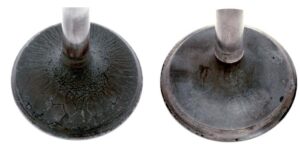
Your engine cannot operate well with all that carbon in the way, analogous to attempting to breathe while something is obstructing your nose. To keep your engine operating smoothly and save money on repairs, it is crucial to prevent and address carbon buildup.
How To Maintain Your Car’s Smooth Operation?
Problems can arise if carbon buildup gets inside the engine of your car. Not to worry! Here’s how to keep your automobile running smoothly despite carbon buildup.
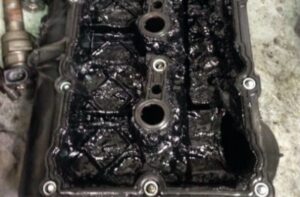
1. High-Octane Fuel Use:
Change to high-quality fuel that has cleaners made to remove carbon deposits. This may help the accumulation gradually dissolve.
2. Fuel Supplements:
Use fuel additives designed to reduce carbon buildup, if possible. For optimal results, adhere to the product’s directions.
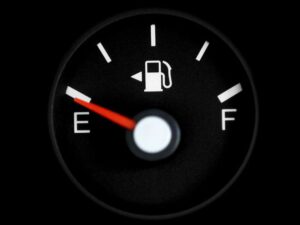
3. Additives For Engine Oil:
Some engine oil additives can assist in removing carbon buildup. For advice, go to your owner’s manual and a mechanic.
4. Start The Engine Warmup:
Allow your car’s engine to warm up a little before starting it. This aids in clearing some carbon buildup.

5. Go Slowly:
Steer clear of abrupt acceleration and hard braking. Driving slowly lessens the load on the engine and prevents carbon buildup.
6. Highway Drives:
Take an ordinary highway journey with your car. Longer distances and faster speeds can aid in burning off carbon buildup.

7. Commercial Cleaning:
If there is a lot of carbon buildup, think about hiring a cleaning service. The engine and intake system can be cleaned by mechanics.
8. Consistent Maintenance:
Follow the maintenance schedule for your car. This includes replacing the air filter and the spark plugs, which can assist in stopping additional accumulation.

Be patient since removing carbon buildup takes time. By following these instructions and keeping up with routine maintenance, you can ensure dependable performance even when dealing with the annoying problem of carbon buildup.
Conclusion:
Even while carbon buildup in engine is a stubborn invader, you may fend it off with knowledge and preventative steps. Your allies in the fight against carbon deposits are routine maintenance, premium gasoline, and careful driving practices. By following these instructions, you can make sure that your car’s engine continues to give dependable performance and fuel efficiency for many years to come.
Therefore, do not hesitate to ask if you require anything, have any questions, or require any assistance. Your car’s well-being is our first priority. Driving safely and happily!
